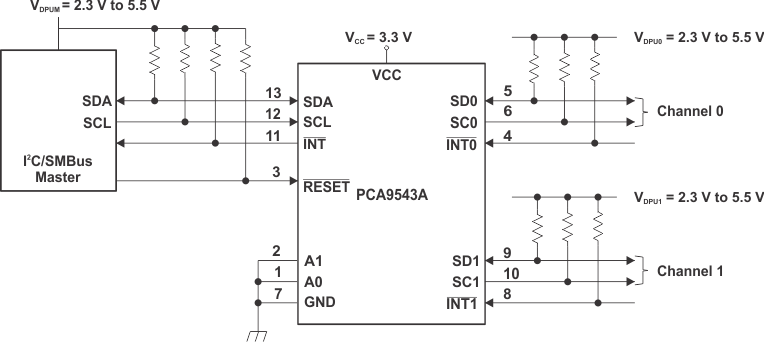SCPS169B September 2007 – March 2021 PCA9543A
PRODUCTION DATA
- 1 Features
- 2 Applications
- 3 Description
- 4 Revision History
- 5 Pin Configuration and Functions
- 6 Specifications
- 7 Parameter Measurement Information
- 8 Detailed Description
- 9 Application and Implementation
- 10Power Supply Recommendations
- 11Layout
- 12Device and Documentation Support
- 13Mechanical, Packaging, and Orderable Information
Package Options
Mechanical Data (Package|Pins)
Thermal pad, mechanical data (Package|Pins)
Orderable Information
9.2 Typical Application
A typical application of the PCA9543A will contain anywhere from 1 to 3 separate data pull-up voltages, VDPUX , one for the master device (VDPUM) and one for each of the selectable slave channels (VDPU0 and VDPU1). In the event where the master device and both slave devices operate at the same voltage, then the pass voltage, Vpass = VDPUX. Once the maximum Vpass is known, Vcc can be selected using Figure 9-2. In an application where voltage translation is necessary, additional design requirements must be considered (See Design Requirements).
Figure 9-1 shows an application in which the PCA9543A can be used.
 Figure 9-1 Typical Application
Figure 9-1 Typical Application